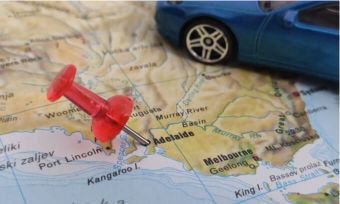KEY POINTS
- There’s much more to your car’s running costs than simply the car’s fuel and servicing.
- Car loan repayments, car insurance premiums, and registration and licencing fees can all add up.
- You may also need to budget for parking and tolls, though discounts and cost relief may be available in some cases.
What are the ongoing costs of owning a car?
The average cost of owning a car in Australia can vary greatly, depending on the make, model and age of the vehicle, among many other factors. As well as the purchase price, you’ll need to budget for your car’s upkeep, though the average car running cost can also vary greatly.
Some of the main ongoing costs of owning a car can include:
- car insurance
- registration and licence fees
- fuel
- servicing and maintenance
- car loan repayments
- parking fees and road tolls
- depreciation
Car insurance
In Australia, compulsory third party (CTP) insurance is mandatory, and an important part of car running costs. It can protect you financially if you injure or kill someone in a car accident. CTP insurance is included in your registration cost in many Australian states and territories, with a few exceptions such as in NSW.
You may also decide to take out a higher level of insurance. This can be third party property damage, third party fire and theft, or a comprehensive car insurance policy. Comprehensive car insurance provides the most cover, but is typically also the most expensive.
Some car insurance policies can also include roadside assistance as a standard or optional extra. Roadside assistance can also be bought separately through a motoring club such as NRMA, RACV or RACQ.
The cost of car insurance will depend on factors such as your age, the vehicle you are insuring, where you live, your claims history and the excess you choose. You might also like to shop around and compare policies.
- Save 15%^ on your first year’s premium when you purchase a new Car Insurance policy online.
- 24/7 Phone & Online Claims.
- Budget Direct - Insurance Solved.
- Insurance that's a bit more you-shaped.
- Canstar's 2024 Most Satisfied Customers Car Insurance - National Award.
- Lodge a Claim 24/7 with our Advisors
- Flexible cover before, 24/7 claims after.
- Save $75 on new Comprehensive car insurance online.
- Conditions apply.
- Option To Pay Monthly. Save On Your Premium By
- Increasing Your Basic Excess (Within A Given Range)*
- Lodge A Claim Online 24/7
- No age-based excess.
- No excess on your first covered windscreen repair.
- Canstar 2025 Outstanding Value Car Insurance Award.
Registration and licence fees
You’ll need to pay ongoing fees to register your car and maintain your driver’s licence.
The cost of your registration will vary depending on where you live, the type of car you have, vehicle specifications and more. Depending on which state or territory you live in, your registration fees may also cover the cost of CTP insurance.
The Australian Automobile Association (AAA) reports that a typical Australian household in Q1 2025 paid $33.98 per week for registration, CTP and licensing costs in the capital cities, compared to $30.94 per week in the regional centres.
Fuel
To keep your car moving, you’ll need to pay for fuel on a regular basis. According to AAA, the average household in Q1 2025 paid $93.36 a week for fuel in the capital cities and $96.77 a week in regional centres. But fuel prices can differ from suburb to suburb, sometimes by as much as 40 cents a litre, so it may be a good idea to shop around and top up when you spot a reasonable price.
Downloading a fuel monitoring app such as MotorMouth or Petrol Spy can help you search current petrol prices and show where you can find the cheapest fuel in your area. You can also keep track of regular expenses like fuel using a budgeting app.
Servicing and maintenance
Regular servicing is important to make sure your car stays in good shape. Paying for servicing today can potentially help you avoid more expensive issues down the track.
So, how often should you be getting your car serviced? The general rule is that you should service your car every 10,000 kilometres or six months, whichever occurs first.
The AAA put the average price of servicing and tyres at $35.10 per week in the city and #34.06 per week in the regions. Meanwhile oneflare by Airtasker says the average car service cost in Australia is around $220 to $245 for a minor service and $370 to $385 for a logbook service. Meanwhile, a Youi survey found that 35% of car owners are currently delaying a service, with 73% of those surveyed attributing these delays to the cost of maintenance.
Car servicing costs can vary depending on your car’s make and model, and what is required, including repairs. It’s sometimes a good idea to have an emergency fund at hand to cover any large out-of-pocket costs.
Loan repayments
If you bought your car using a car loan, you’ll also have to make regular loan repayments until the loan is paid off, which may be your biggest ongoing car ownership cost. These repayments typically include part of the car loan’s principal (the amount you borrowed) and an interest charge. Some car loans also charge fees that you may need to budget for.
The cost of your car loan repayments will largely depend on how much you borrow, how long the loan term is, the interest rate and the fees charged. You can estimate how much your car loan repayments may cost using Canstar’s Car Loan Repayment Calculator (note it does not consider all fees and charges):
If you don’t make your loan repayments on time, you could risk damaging your credit score. Your lender may also repossess your car if you have taken out a secured loan, or take you to court to recover the outstanding amount.
Parking fees and road tolls
Where do you regularly drive? In some cases, you may need to regularly travel on toll roads, or pay for your own parking at private parking garages. This may make parking fees and road tolls an important part of your household budget to keep your car on the road.
Keep in mind that there may be options available for you to reduce your spending on parking fees and road tolls. For example, NSW residents may be able to claim toll rebates, while some workplaces may offer free or discounted parking for employees in selected locations.
Depreciation
Although depreciation isn’t an actual running cost, it’s important to keep in mind that your car will generally lose value over time. Depreciation can vary depending on factors such as the make and model of your car. This may affect the car’s resale value if you later want to trade in or upgrade your wheels, as well as the market value you may get back from your insurer if your car was to be written off in an accident.
Cover image source: alexfan32/Shutterstock.com.








